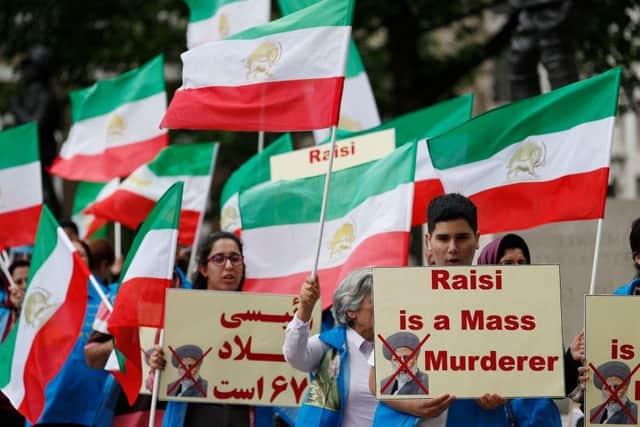Executions in Iran have risen to ‘staggering’ level in first six months of year
The study, by Amnesty International and the Abdorrahman Boroumand Center for Human Rights in Iran, warned that if executions continue at this pace they will soon surpass the total of 314 executions recorded in Iran during the whole of 2021.
The majority of those executed this year had been convicted of murder amid well-documented patterns of executions in Iran being carried out following trials which human rights activists have said are often unjust. At least 86 others were executed for drug-related offences. However, international law states that this crime should never incur the death penalty.
Advertisement
Hide AdAdvertisement
Hide AdOn 23 July, the authorities executed one man in public in Fars province, after a halt in public executions for two years in the country during the Covid pandemic.
Iranian president Ebrahim Raisi, who took over as leader last year, has previously been accused of sending as many as 3,000 people to slaughter as the youngest member of the 1988 Tehran death committee, when political prisoners were systematically executed by the state. Amnesty said that the rise in executions began in September 2021 to the highest level since 2017, after Mr Raisi was appointed to the role.
The figures compiled by Amnesty and the Abdorrahman Boroumand Center draw from a variety of sources - including prisoners, relatives of those executed, human rights defenders, journalists and reports by state media, as well as independent media outlets and human rights organisations. The organisations warned that real number is likely to be even higher given secrecy in Iran on the topic.
Under Iranian law the death penalty applies to numerous offences, including financial crimes, rape and armed robbery. Activities protected by international human rights law such as consensual same-sex sexual conduct, extramarital sexual relations and speech deemed “insulting to the Prophet of Islam” - as well as vaguely-worded offences such as “enmity against God” and “spreading corruption on earth” - are also punishable by death.


Diana Eltahawy, Amnesty International’s Middle East and North Africa Deputy Director, said: “During the first six months of 2022, the Iranian authorities executed at least one person a day on average. The state machinery is carrying out killings on a mass scale across the country in an abhorrent assault on the right to life.”
Roya Boroumand, executive director of the Abdorrahman Boroumand Center, said: “The disproportionate use of the death penalty against Iran’s Baluchi minority epitomises the entrenched discrimination and repression they have faced for decades and further highlights the inherent cruelty of the death penalty, which targets the most vulnerable populations in Iran and worldwide.
“The Iranian authorities must immediately establish an official moratorium on executions with a view to abolishing the death penalty completely.”
According to a source interviewed by Amnesty last month, since early this year the authorities in Raja’i Shahr prison, which has one of the largest numbers of people on death row, have been executing five people each week on average, with up to ten executions carried out some weeks.
Comments
Want to join the conversation? Please or to comment on this article.
